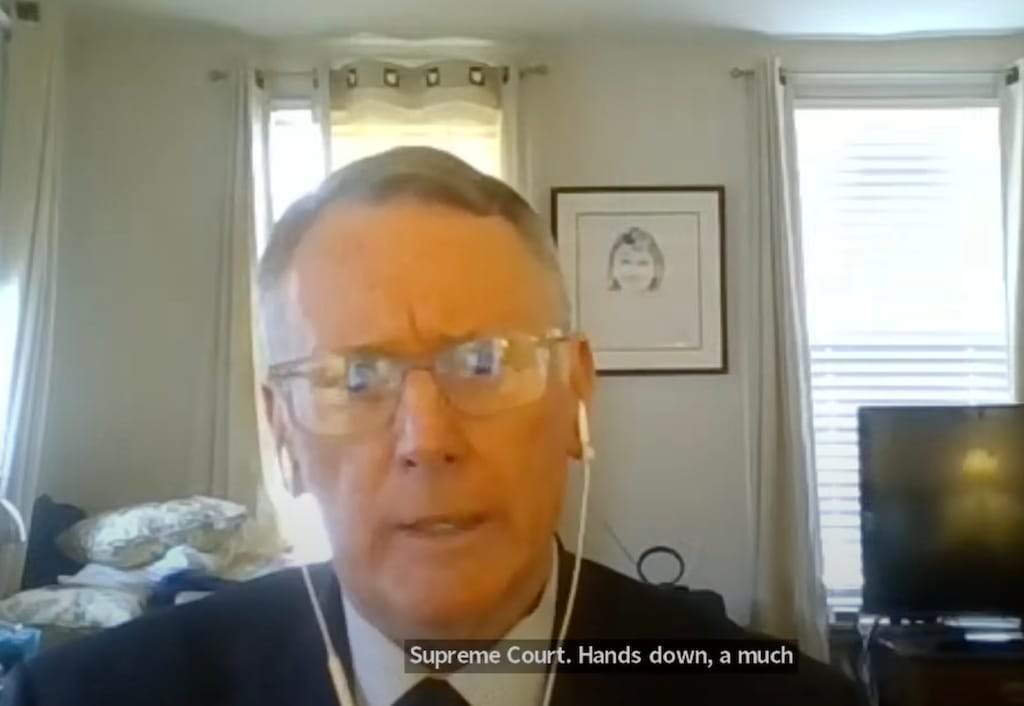FCC Rules Face Litigation Risk in 2024, Note Journalists
A potentially active Supreme Court and its 'major questions' doctrine could pose challenges for the FCC.

WASHINGTON, January 4, 2024 — A panel of top telecom journalists on Wednesday warned that major FCC policy moves in 2023 face significant litigation threats in the year ahead.
The year “2024 is going to include a lot of litigation and a lot of it generated by the cable TV industry,” said Ted Hearn, editor of Policyband.

Speaking on Broadband Breakfast Live Online Wednesday, Hearn said that industry would likely be challenge the agency’s rules on net neutrality, digital discrimination, early termination fees, and “all-in” pricing.
Others of the journalists agreed that the FCC’s net neutrality order is unlikely to survive court scrutiny. Howard Buskirk, executive senior editor of Communications Daily, pointed out that the Supreme Court’s “major questions doctrine” as a barrier for the FCC to overcome.
In 2022, the Supreme Court held in West Virginia v. EPA that Congress alone has the power to decide on “major questions” of “vast economic or political significance.” Hearn and Buskirk said that it was almost certain that net neutrality would fit into that category, and that as such a “major question,” its resolution was the responsibility of Congress alone.
Noting the lack of radio frequency spectrum availability in 2023, Buskirk also highlighted the role of spectrum sharing over the past year. This included the FCC’s focus on finalizing rules for specific spectrum bands, such as the 4.9 GigaHertz, as well as the broader implications for 5G and 6G wireless technology development.
BEAD Implementation
Other topics covered included details in the implementation of the $42 billion Broadband Equity, Access and Deployment program, and concern over the likely depletion of the Affordable Connectivity Program fund.
While BEAD is likely to help advance rural connectivity, its focus on rural areas leaves major urban connectivity gaps unaddressed, noted Sean Gonsalves, senior reporter and editor at the Institute for Local Self-Reliance’s Community Broadband Networks Initiative. He predicted the lion’s share of BEAD funds will be awarded to incumbent internet service providers.
Gonsalves also highlighted that the FCC’s new rules around digital discrimination may amount to little given that the agency allows for discrepancies as “justified by genuine issues of technical or economic feasibility.”
As the event wound down, Broadband Breakfast Editor and Publisher Drew Clark, the session moderator, asked each panelist to name one surprise issue to watch for in 2024.
Hearn highlighted marketplace challenges for the cable industry, including from fixed wireless access.
Buskirk said the year will be dominated by actions at the FCC, including those by recently-confirmed agency Commissioner Anna Gomez.
Gonsalves warned of increasingly aggressive anti-community broadband campaigns by cable lobbyists.
Telecommunications Reports Senior FCC Reporter Lynn Stanton closed the session by predicting “some big sleeper issue we’ve all completely forgotten about that will somehow rise from the dead now that the FCC has this 3 to 2 majority.”

January 3, 2024 – The Broadband Forecast for 2024 with Tech Journalists
Kick off 2024 with us at our first livestream event of the year with broadband journalists predicting the biggest shifts in infrastructure and connectivity in 2024 as we consider The Twelve Days of Broadband! Tune in to get a glimpse into the future of connectivity and where the year might take us!
Panelists
- Howard Buskirk, Executive Senior Editor, Communications Daily
- Sean Gonsalves, Senior Reporter, Editor and Communications Team Lead, Institute for Local Self Reliance’s Community Broadband Networks Initiative
- Ted Hearn, Publisher, Policyband
- Lynn Stanton, Senior Editor, Wolters Kluwer’s TR Daily.
- Drew Clark (moderator), Editor and Publisher, Broadband Breakfast











Member discussion